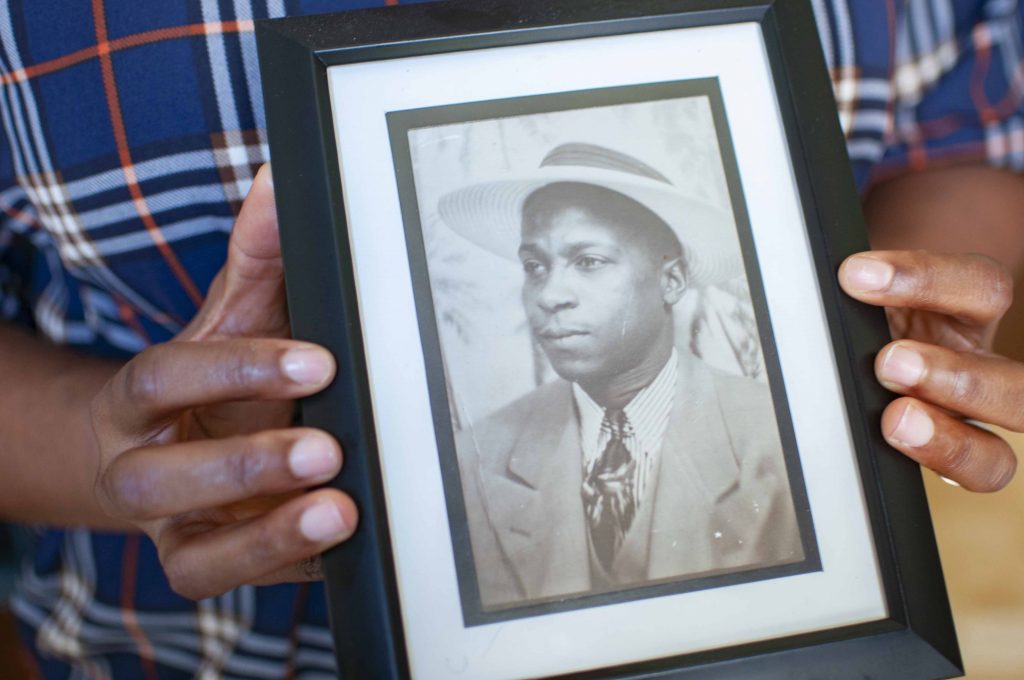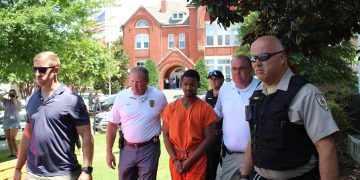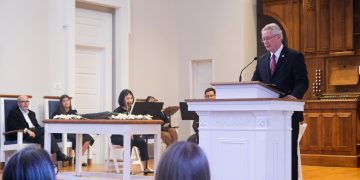James Alexander Ventress, the namesake of Ventress Hall on the University of Mississippi’s campus, authored the bill to establish the university in 1840. He was also a slave owner.
Nicka Sewell-Smith, a genealogist from Bolivar, Tennessee, is the great-great-granddaughter of Easter Parker, a slave owned by Ventress. She first notified The Daily Mississippian of this connection in a tweet.
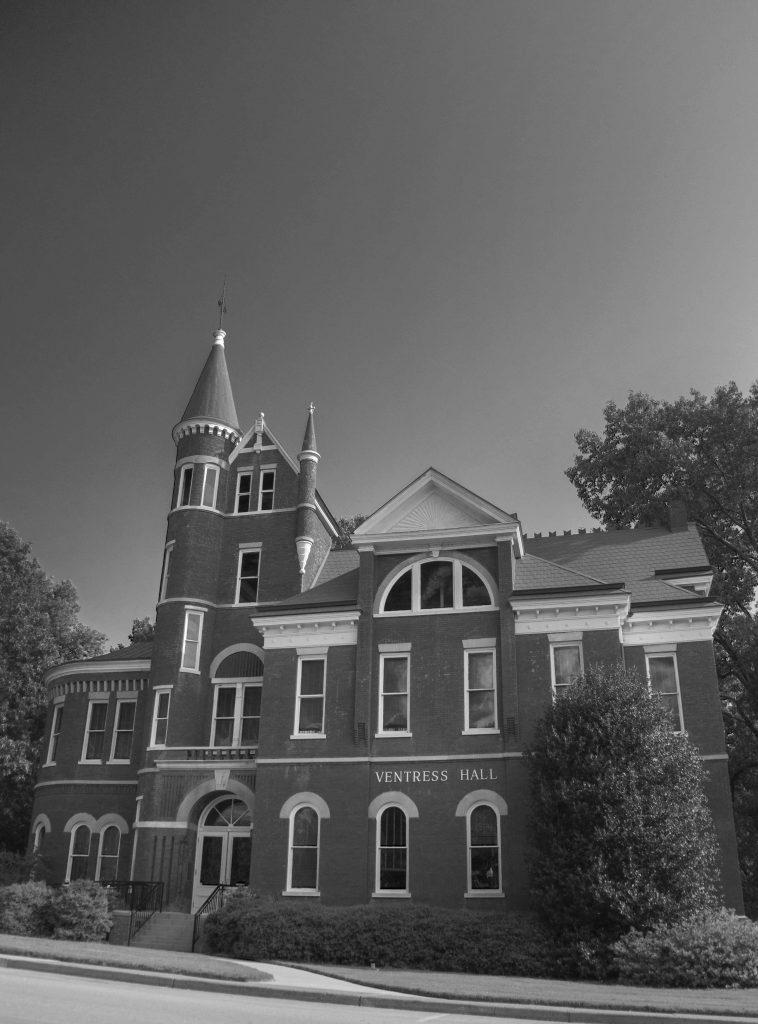
“While you’re at it, call for renaming Ventress Hall,” Smith tweeted in response to a story about the university cutting ties with donor Ed Meek. “It’s named after a slaveholder who owned my family.”
Smith, a professional genealogist for over 20 years, discovered her relation to Parker around a year ago while researching her family tree. After taking a DNA test and attempting to find out how she and her cousins are related, she found that there were three clusters of relatives in different areas of the South. One in Pointe Coupee Parish, Louisiana, one in Concordia Parish, Louisiana, and one in Wilkinson County, Mississippi. She questioned what connected those family members.
“I figured it had to do with slavery,” Smith said.
She discovered there was a population of over 250 interrelated slaves owned by Ventress and his family. Charlotte Pynchon Ventress, James Ventress’s wife, had an uncle, James Lawrence Trask, who died in Woodville in 1855. At the time of his death, he left a plantation he owned to Charlotte and split another plantation between Charlotte and her first cousin, Augustus Trask Welch.
Welch lived in Concordia Parish, Louisiana, which is how Smith’s family ended up there. Charlotte took the slaves she inherited to Pointe Coupee Parish.
“Some of the earliest folks that were in that group were born in the late 1700s, and some of them were born in Africa,” Smith said, adding that that fact is remarkable given the short life expectancy for enslaved people at the time.
Ventress and his wife’s family originated in Massachusetts but moved south to operate plantations with slave labor. Even family members that remained in the North made money from slavery in the South by financing loans to their family.
Because of those financial documents the Ventress family kept, the history is easy to reconstruct, Smith said.
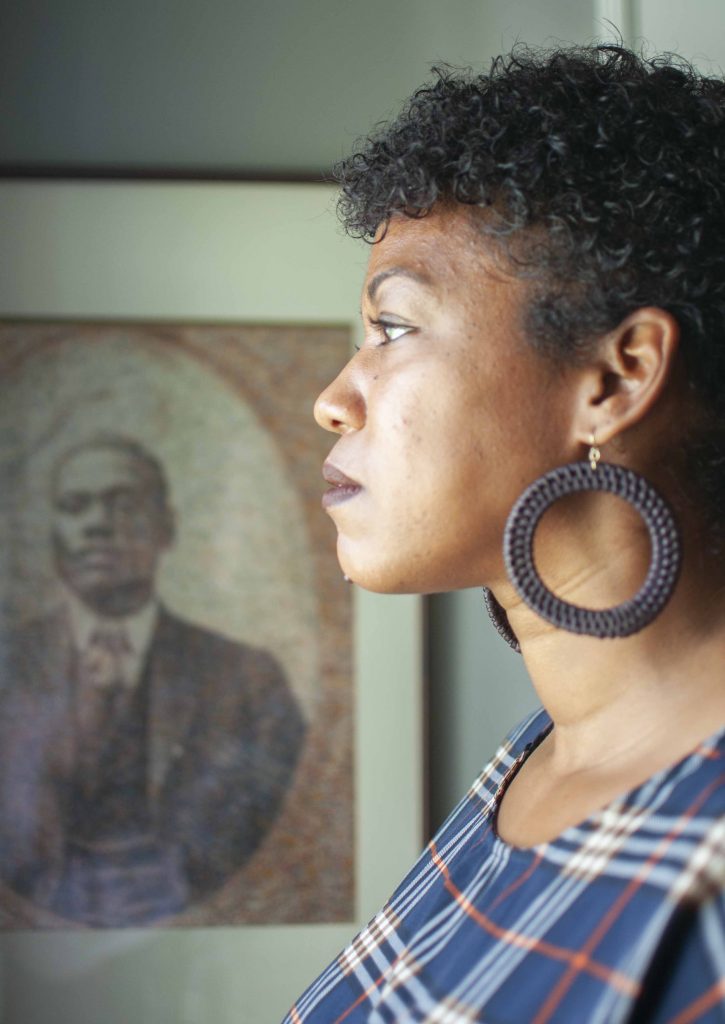
“I started finding (the slaves) documented more than 30 times, which is very rare when you’re talking about researching slavery,” Smith said. “It’s because (the Ventress family) borrowed so much money against them to finance operations. The folks in the North would charge 9 percent interest, you know, so they would make above and beyond what they had doled out to the folks that were operating down in Mississippi.”
When Smith’s great-great-grandmother Parker was born in 1856, she was shared property between the two families, because the Trask’s estate was divided between Augustus Welch and Charlotte Ventress in 1855.
In 1856, Augustus Welch transferred ownership of Parker, an infant at the time, to Charlotte Ventress, making Parker as much James Ventress’ property as his wife’s.
“Some of these people were like 90 years old when they saw freedom,” Smith said. “They literally survived the transatlantic slave trade, which was horrible. They made it to the United States, and then they ended up in this one plantation, and they survived through slavery and basically outlived their owners.”
Parker was born a slave in 1856 and died free in California in 1946, where she spent the last seven years of her life.
Although she’s been researching for months, Smith said her work is not done. Most of her research so far has been conducted through Ancestry.com, FamilySearch and a visit to Jackson to search through the Mississippi State Archives. Smith said she eventually plans to visit the three areas where Ventress’ slaves lived.
Similar work has been done over the past few years on the Ole Miss campus.
In March 2018, the Chancellor’s Advisory Committee on History and Context (CACHC), unveiled six contextualization plaques on campus highlighting the accomplishments and transgressions of the namesakes of Longstreet Hall, George Hall, Lamar Hall and Barnard Observatory. As of the submission of its report to create the plaques, the CACHC is no longer a “standing committee,” according to Jeffrey Jackson, a sociology professor and previous member of the CACHC.
The final two plaques are for the Tiffany stained-glass window in Ventress Hall commemorating the “University Greys,” a company of students who fought for the Confederacy during the Civil War, and a plaque between Ventress and Croft Hall on the Circle to commemorate all of the university’s enslaved laborers.
There is no plaque for Ventress Hall itself to acknowledge James Ventress’ lifetime of contributions to the state and university, or negative aspects of his personal life, as there are for other men whose names were attached to buildings many years before the current student body arrived on campus.

“The committee was responding to community input, and the buildings selected were the ones that community members indicated most often as being in need of contextualization,” Jackson said. “The stained-glass window in Ventress Hall was identified as a potential site in need of contextualization, but not the building itself.”
Jackson said there are no plans to rename Ventress Hall, and there are currently no additional plaques in the works.
He said many slaveholders had a hand in establishing and developing the university and that being a slaveholder was “never the threshold for contextualization.”
“We were interested in what made people exceptional in their own time, not what makes them exceptional today,” Jackson said. “We cannot — no one can — contextualize all slaveholders.”
Jackson said the plaques were created for buildings like Lamar, George and Longstreet Halls because of “exceptional contributions” made by their namesakes, not the fact that their namesakes owned slaves.
The one thing Smith asks is that the topic of slavery be addressed with nuance.
“It’s either people — which rightfully so — who are really angry about it because it seems very inhumane or people sanitize it to where it makes them feel better about what happened,” Smith said. “There are very few times when people actually walk between those things.”
Smith said she knows that having Ventress Hall renamed is a near impossibility because he’s essentially “the father of Ole Miss,” making him the one person who is least likely to have his name removed.
“To me, that’s understandable because apart from him, you know, his business dealings and what he did outside of his role as a legislator — there would not be this college without that,” Smith said. “But at the same time, if we’re weighing things equally, if we’re looking at both sides of this, would he have risen to prominence without that? Would he have had the role that he did in his community and in the state had he not amassed the amount of wealth and influence as a result of being a planter?”
She compared ignoring the building’s history to someone leaving out the place they grew up or the name of the college they graduated from in a job interview.
Smith was born and raised in Los Angeles County, California, but spent most of her childhood in Moreno Valley and Riverside. She earned a bachelor’s degree in mass communications from Menlo College in California. Smith now lives in west Tennessee, which is where her husband is from.
She said her background in journalism and natural inquisitiveness gave her the tools to be successful as a genealogist while painting a full picture with the history she retells.
“Who wants a peacock with no feathers, right?” Smith said. “You want it where it’s going to, you know, display itself and (where) you’re going to see so many different facets.”
Smith said the Ventresses spoke more about their slaves than their family members in correspondence.
“You know, there has to be a level of humanity about that because, otherwise, why would you talk about your car?” Smith said.
Addressing the history is not a matter of tarnishing the Ventress legacy, Smith said.
“They may be beholden to them, and that’s painful, especially if they had this idea of who they are in their head and this challenges that narrative,” Smith said.
She said people often choose to ignore history that conflicts with what they previously believed, and she compared it to people who grew up watching The Cosby Show having to come to grips with Bill Cosby’s sexual assault convictions.
“We owe it to everybody to give dignity to these people, and I really, truly, honestly feel blessed to have found this out because … for the average person of African descent living in the United States that descended from slaves, most people can’t trace past their great-great grandparents,” Smith said.
Smith said that if all she’s meant to do on Earth is give information to people about ancestors they never even thought they would know the names of, then she’s satisfied with that.
“They’ll go in there and tell you about the marble and where the marble came from,” Smith said, referencing tours of historic buildings. “My question is, ‘Who was shining it?’”
